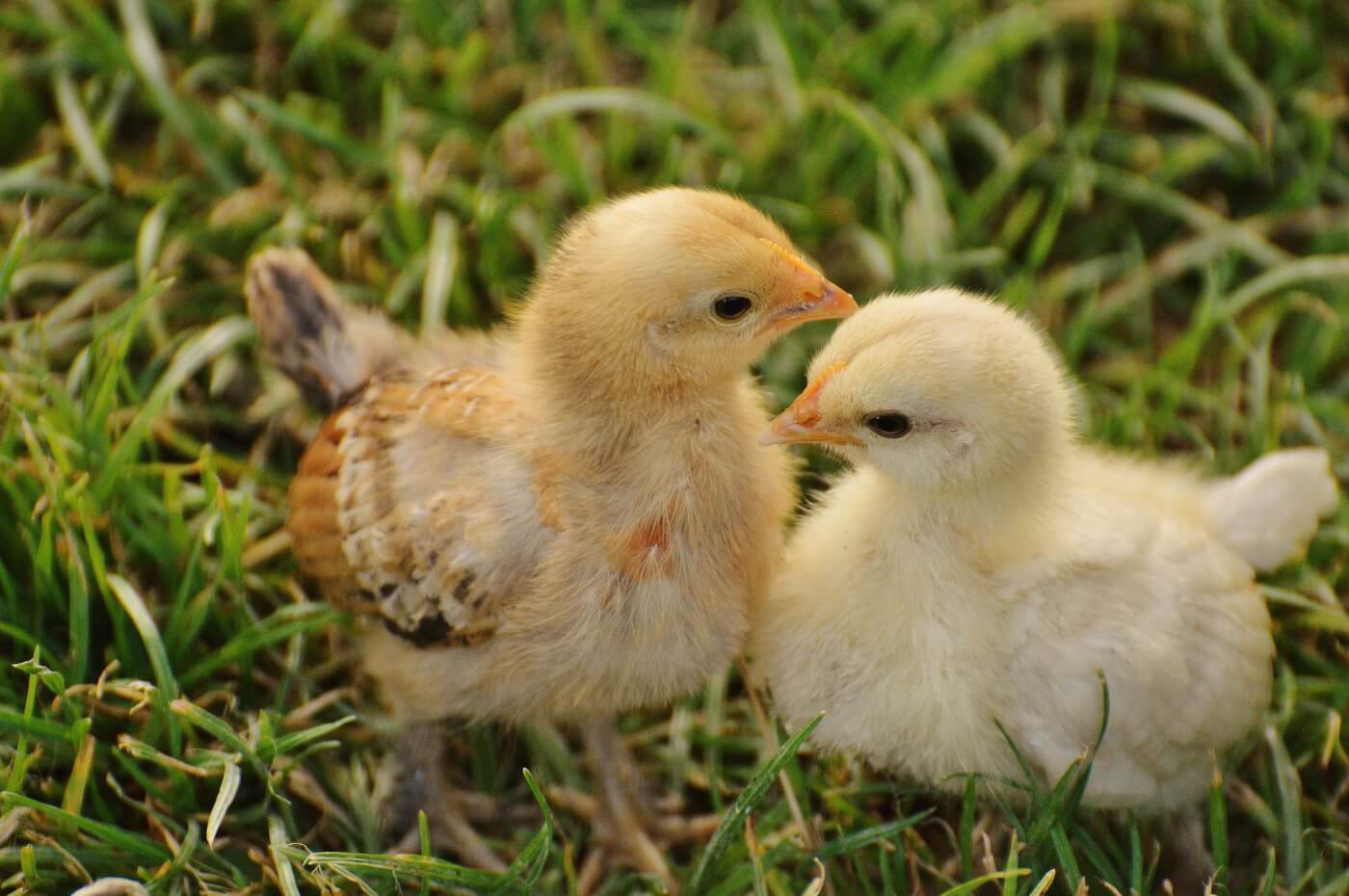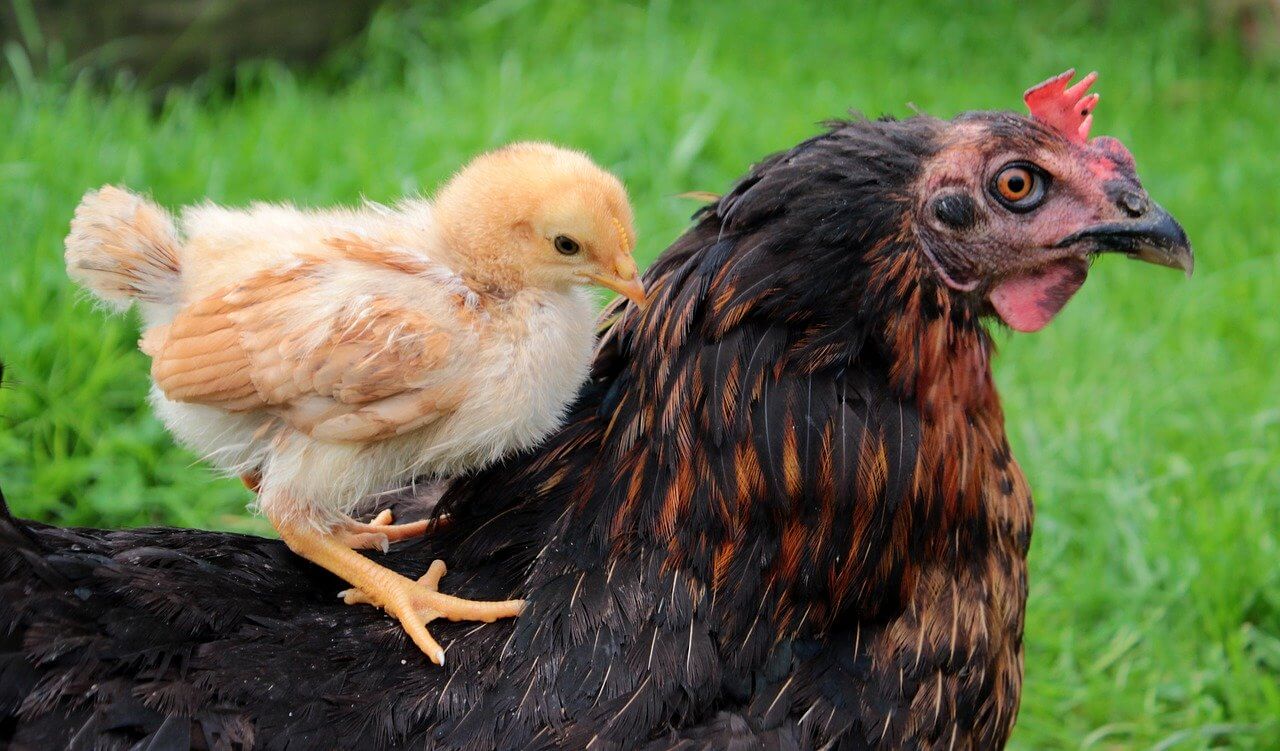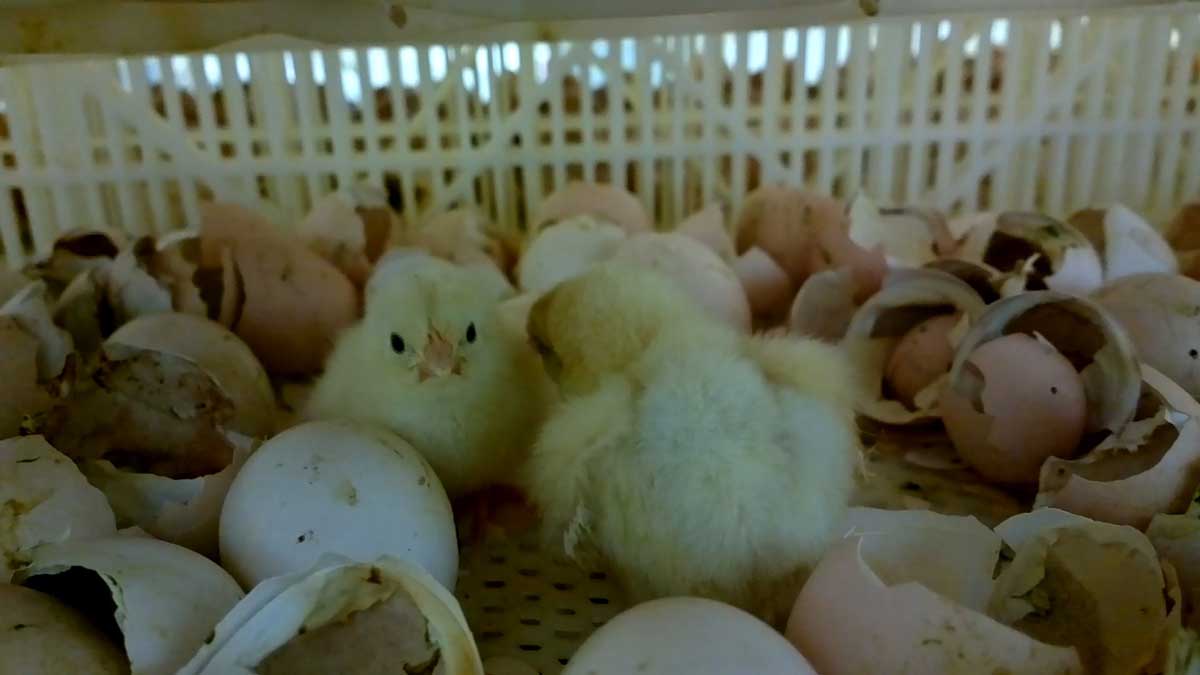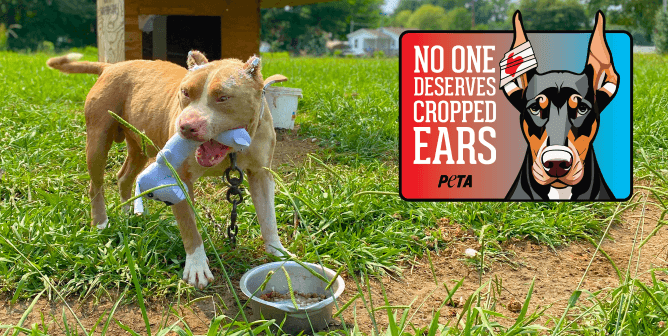Every spring, unprepared and misguided parents buy sensitive, newly hatched chicks from hatcheries, feed stores, and breeders. Chick suppliers in some states even dye the animals bright colors by spraying them with food coloring or drilling holes in eggs and injecting dye directly into the embryos to market them as fun Easter “toys.”
However, just as the colorful dye soon wears off, so does children’s interest in the chicks, who require specialized care. The result is suffering and death for many of these vulnerable animals.
Animals aren’t Easter toys or “gifts”—here are six reasons why you should never buy Chicks as “pets” for Easter (or ever):
Baby chicks need their mothers.
Chicks rely on their mothers for warmth and safety as well as for learning everything that they need to survive, including how to eat and drink. When given the chance, hens remain with their young for up to eight weeks, forging strong emotional bonds and teaching them independence. They even use a special call to summon their babies, which enhances their memory formation.
The bond begins before the eggs even hatch, as mother hens carefully rotate their eggs up to 30 times a day to maintain the proper temperature, moisture, and position. But hatcheries put eggs in an incubator, and chicks may become sick and deformed if the right conditions aren’t met—and then they may be considered unsellable and killed.
Chicks are extremely fragile.
Chicks have extremely soft, delicate bones, and enthusiastic children may accidentally hold them too tight or drop them, leading to a painful injury or death—as well as heartbreak for a young child.
Chicks have specific needs.
Families who buy chicks on a whim often have no idea how to care for them. Chicks who are sold are young and extremely vulnerable. They still need their mothers’ help with eating, drinking, and keeping clean. 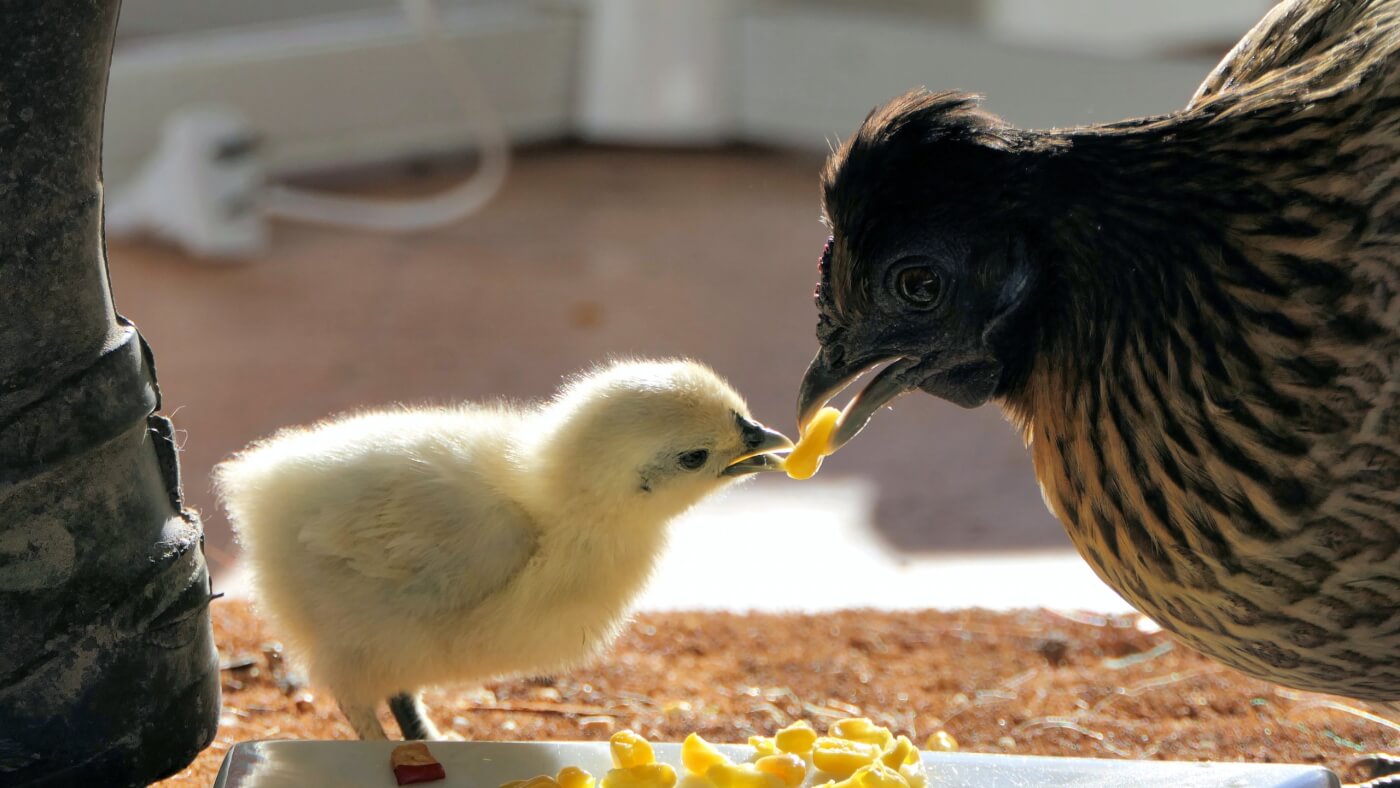
They also need a heating lamp and consistent monitoring to ensure that their enclosure is the right temperature as well as other specialized care.
Chickens require the same veterinary-care budget—including for regular checkups and parasite treatments—as a dog or a cat, and many chicks suffer and die because of improper care.
Most animals—including chicks—bought for Easter are abandoned.
Many people bring chicks home on Easter without realizing that taking care of an animal is a long-term commitment. (Chickens can live for 10 years or more.) At least 60% of animals impulsively bought for Easter are abandoned on the streets, where they’re defenseless against predators, or are taken to shelters, which are already struggling to find homes for all the animals who come through their doors.
Hatcheries treat living beings like merchandise and trash.
Hatcheries ship chicks—some as young as 1 day old—cross-country in dark, cramped cardboard boxes. The birds are subjected to temperature extremes, jostled around, and deprived of food and water for 72 hours or longer, if orders are delayed. The journey is so stressful that many arrive at their destinations sick or even dead.
What’s more, buying chicks supports the cruel egg industry. Hatcheries also kill male chicks (who can’t lay eggs and are therefore unprofitable)—sometimes by throwing them into massive grinders called “macerators” and shredding them alive.
Buying chicks teaches children a dangerous lesson.
Buying children chicks as Easter “gifts” or “pets” teaches them that animals are toys to play with, rather than sensitive beings to respect. Instead, teach kids a lesson in kindness this Easter by reading animal-friendly books together or sharing interesting facts about chickens. Here’s one: A study in Italy found that chicks can count and perform basic arithmetic! They also have good memories and can plan ahead.
*****
Chickens aren’t objects to be bought and sold. They’re social, intelligent animals who don’t want to be shipped, abandoned, or killed. Never buy chicks from hatcheries, feed stores, breeders, or anywhere else.
Help—don’t hurt—chickens this Easter. Take PETA’s actions to help chickens who are used for their flesh and eggs:


